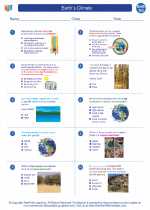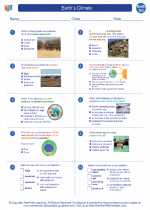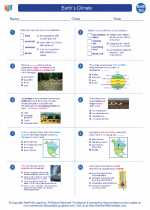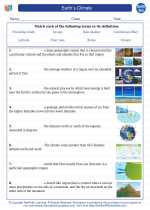Center in Earth Science
In Earth Science, the term "center" can refer to various concepts, including the center of the Earth, the center of the solar system, and the center of the universe. Understanding these centers is crucial to grasping the dynamics and structure of the Earth and the cosmos.
Center of the Earth
The center of the Earth is known as the Earth's core. It consists of a solid inner core and a liquid outer core. The inner core is believed to be primarily composed of iron and nickel, while the outer core is a fluid layer. Understanding the composition and behavior of the Earth's core is essential for comprehending phenomena such as Earth's magnetic field and geodynamo.
Center of the Solar System
The center of the solar system is the Sun. It is a massive, luminous sphere of plasma that exerts gravitational influence on the planets, asteroids, comets, and other celestial bodies within its domain. The Sun's energy and gravitational pull shape the orbits and dynamics of the solar system's constituents, making it a pivotal center of study in Earth Science.
Center of the Universe
In the context of cosmology, the center of the universe is a concept that has been the subject of much debate and inquiry. Modern cosmological theories such as the Big Bang theory suggest that the universe is expanding uniformly in all directions, with no specific center. Understanding the nature of the universe and its potential centers is an ongoing area of research and exploration in Earth Science.
Study Guide
To deepen your understanding of the concept of "center" in Earth Science, consider focusing on the following key areas:
- Geophysics: Explore the properties and dynamics of the Earth's core, including seismic waves and geodynamo.
- Solar System Dynamics: Investigate the Sun's role as the center of the solar system and its impact on planetary orbits and behavior.
- Cosmology: Delve into theories of the universe's structure and evolution, including discussions on the absence or presence of a central point in the cosmos.
By engaging with these areas of study, you can develop a comprehensive understanding of the concept of "center" in Earth Science and its significance in our exploration of the Earth and the universe.
.◂Earth Science Worksheets and Study Guides High School. Earth`s Climate

 Worksheet/Answer key
Worksheet/Answer key
 Worksheet/Answer key
Worksheet/Answer key
 Vocabulary/Answer key
Vocabulary/Answer key
 Vocabulary/Answer key
Vocabulary/Answer key
 Vocabulary/Answer key
Vocabulary/Answer key
